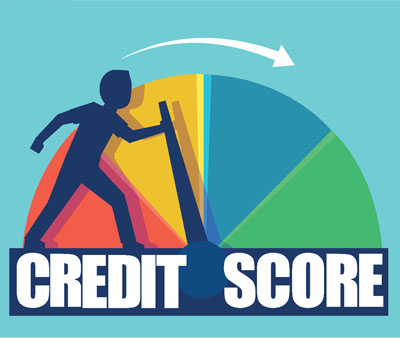Building credit from scratch isn’t as hard as you might think. You can start building credit today with just five simple actions.
1: Take advantage of online tools
An easy way to start building credit is by taking advantage of online tools. Sites like Redd Ink Credit offer an improvement of your credit score, plus other goodies, such as personalized tips on how you can improve it. If you have a co-signer, like a parent or a partner, and you aren’t yet able to get approved for things on your own—you can open up joint accounts with them so you have access to credit sooner than later. (Just be sure not to abuse it!) You can even use an app called EarnUp that links directly with your bank account and lets you earn cashback on everyday purchases from places like Target or Walmart; those payments are then automatically deposited into your account. Over time these small deposits will help build up your credit score.
2: Know your options
There are several options when it comes to building your credit. One is to take out a secured credit card, which requires you to put down a security deposit, typically equal to your spending limit. Another option is asking an existing creditor for a line of credit on top of what you already have. Keep in mind that using someone else’s money will increase your interest rate and may not be worth it if you don’t plan on paying off the balance right away. If neither of these options sounds appealing to you, then checking into a secured credit union might be best because they tend to offer lower rates than most banks. Other alternatives include borrowing from family or friends, financing education, or even refinancing your mortgage (which can boost your score by reducing debt). Whatever option you choose, remember that establishing a good credit history starts with understanding all of them and picking one that works for you.
3: Understand your credit score
Before you can start building your credit, you need to know how it works. Your credit score is a number that helps lenders understand how likely you are to repay the debt; what makes up your score will vary depending on who’s asking. But, at its most basic level, it can be broken down into five key factors:
- Payment history (35%)
- The amount owed (30%)
- Length of credit history (15%)
- New credit inquiries/applications (10%)
- Types of credit used (10%).

A healthy mix of these elements is a good place to start when planning out your strategy for building credit. It’s also important to have an idea of where you stand with your credit before shopping around for credit cards or loans; without knowing your current standing, other players in the field have no idea where they should put their money either. For example, if banks see that consumers are paying off their debts and using a variety of different accounts responsibly, they may be more willing to offer low-interest rates on loans—which could help you save big later.
4: Know what factors into your credit score
Credit scores are one of those mysterious, misleading numbers you often hear but never understand. While your age doesn’t affect your credit score directly, it does impact how long you’ve had a particular line of credit open. It takes about 2 years for an account to show up in your report, meaning that if you have many accounts open within a short time, it will throw off your ratio. Be sure to know what goes into calculating your credit score before starting down any paths towards building or rebuilding yours. Doing so can help ensure you’re maximizing your efforts while achieving positive results.
5: Don’t close credit cards you don’t use
The number of credit cards you have isn’t as important as how many you use regularly. Closing a card can hurt your credit score, so don’t close a card just because it isn’t active. Make sure your payment history is up-to-date by using your card every once in a while (even if it’s just for a small purchase) and watch your credit scores rise with each passing month. And remember: You don’t need an official credit building reason to use your card.
Don’t let those zero-percent teaser APRs pass you by—just make sure you pay off your balance in full when that special deal ends. You don’t want to be saddled with high-interest payments down the road! Pay on time! Being late or missing a payment will damage your credit in no time flat. Just like closing an account lowers your overall credit limit, missing payments hurt your average account age and length of credit history, which are just as important. Try setting reminders on your phone calendar whenever it’s due date time; then stick to them! Consider student loans part of regular debt: If you’re fortunate enough to qualify for student loans through education programs like Stafford Loans or Perkins Loans, go ahead and take advantage! Just know that repaying these loans should be considered part of regular debt along with mortgages, car loans, and everything else.





